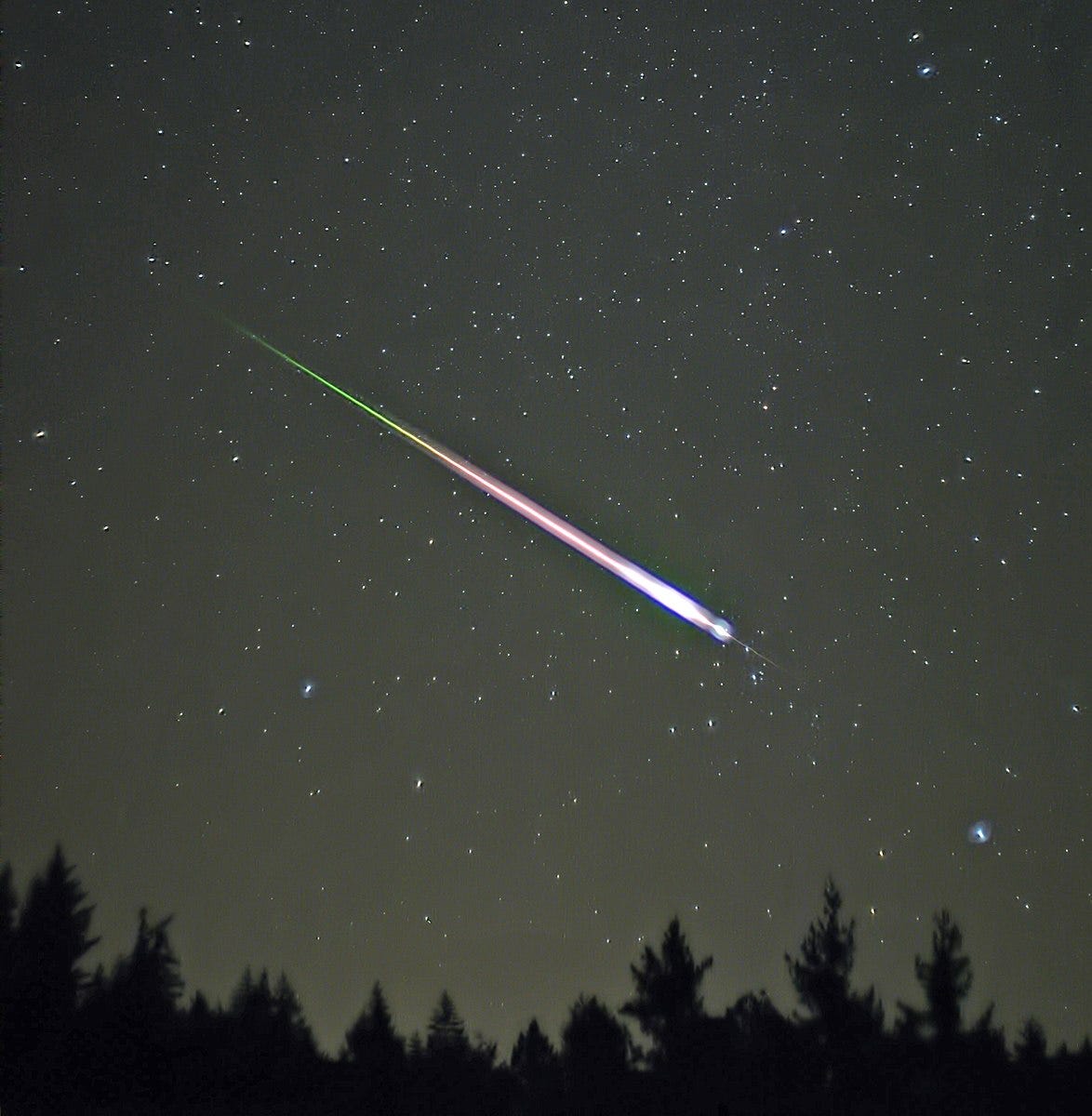In A Loose Mountain (Telescopic), Robert Frost, bringing together the mystical, wondrous and scientific inquiries, asks his readers a question: did you stay up last night (as "the Magi did") to see the Leonid - one of the most spectacular and reliable meteor showers of the year? Frost describes the Leonid as "fiery puffs of dust and pebbles." He sees it as a punishment for our rebellion against nature. This highlights the complex and often adversarial relationship between us and the rest of the natural world. However, it is an ineffective punishment for preferring "artificial light" to "the ancient sovereignty of night" - the punishment
never reaches earth except as ashes/ Of which you feel no least touch on your face.
Deirdre Fagan, in Critical Companion to Robert Frost, observes that, according to George F. Bagby, this poem presents a particularly bleak view of nature's hostility, with Frost's astronomical perspective leading to a grim outlook that is unparalleled in his other works.
Here is a grimmer observation. The mention of artificial light as a rebellion against the natural order touches on the idea that scientific innovation can both empower and alienate us from the world around us. This idea can be seen in the threat satellites pose to astronomical observation and our need for satellites.
The impact of these glinting satellites on astronomical observations has been compared to the impact an "oncoming car with its brights on" would have on a driver driving down the road and ... looking out through (the) windshield." It is a case of being blinded by too much light.
If more satellites are launched to orbit Earth, satellite companies say, around 2.9 billion people will be able to use the internet. However, it has been pointed out by Rebecca Boyle, in a piece for the Scientific American, that the deployment of more satellites will hinder observations such as those of the Robin Observatory where "the telescope meant to find new and potentially threatening near-Earth objects, as well as transient events such as supernovae - and all things no one has thought of yet."





